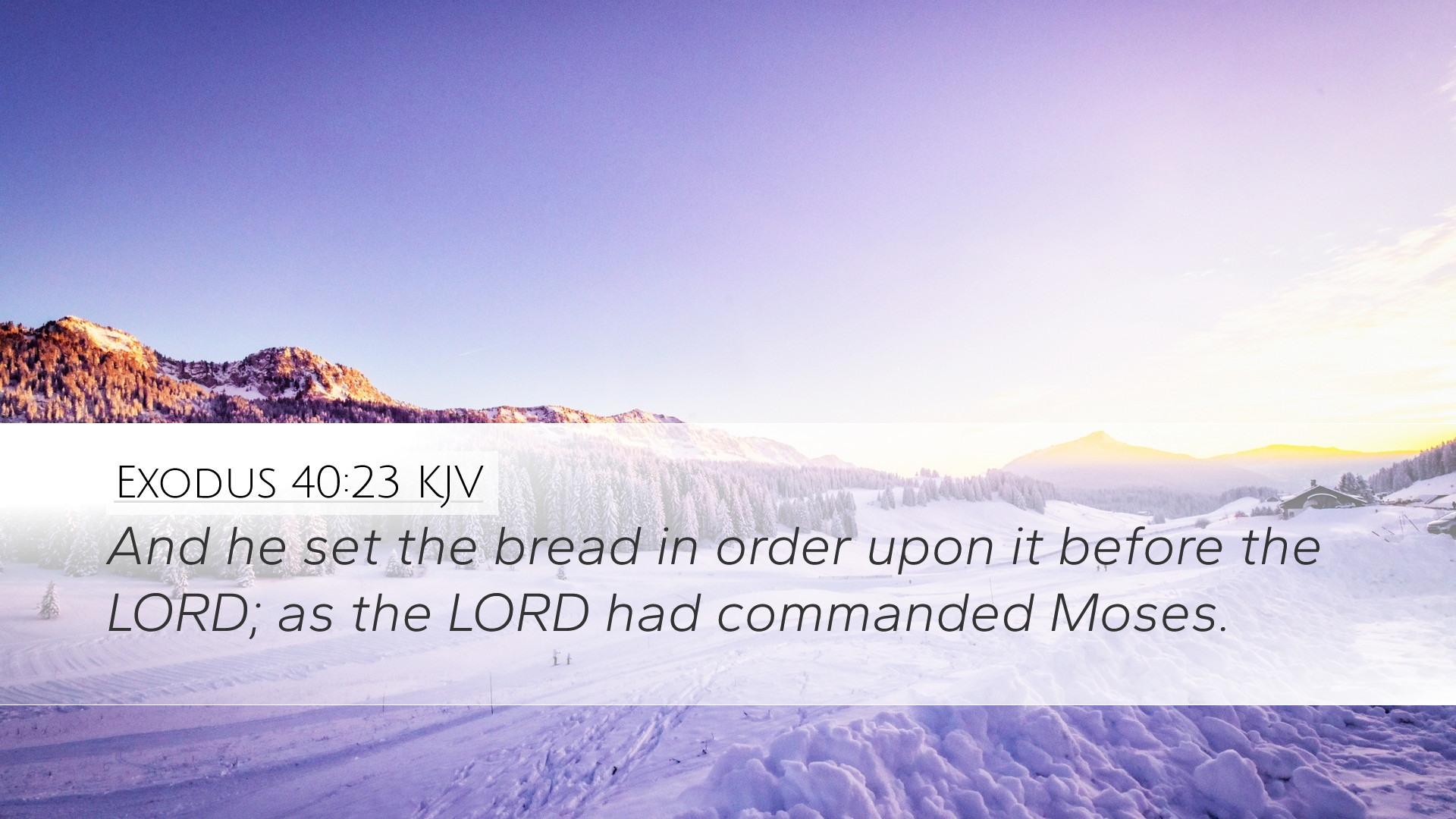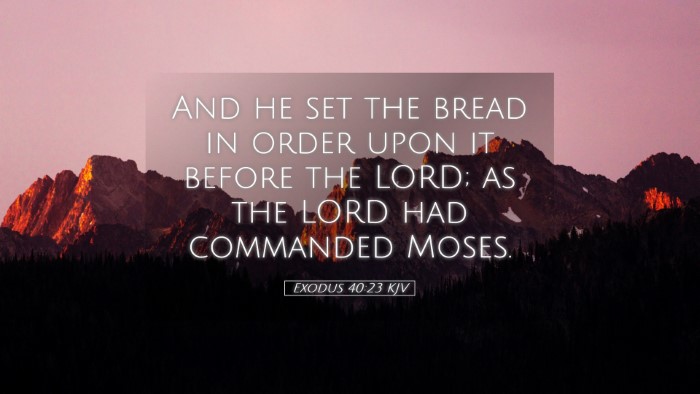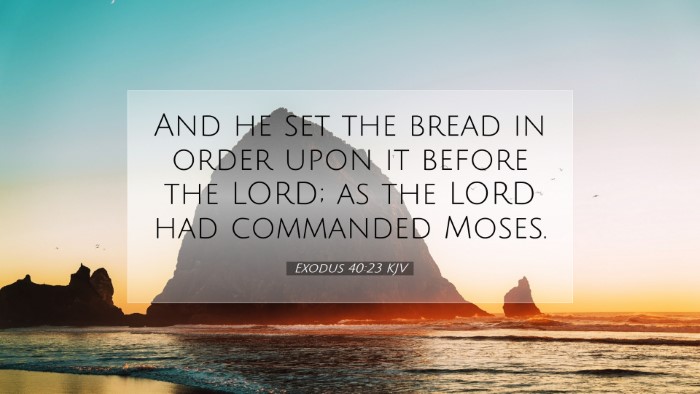Commentary on Exodus 40:23
Verse Reference: Exodus 40:23
Text: "And he put the bread in order upon it before the Lord; as the Lord had commanded Moses."
Introduction
Exodus 40:23 concludes the narrative of the establishment of the Tabernacle and highlights the meticulous nature of divine worship as prescribed in the Mosaic Law. This verse provides a significant insight into the importance of ritual, order, and obedience in the relationship between God and His people.
Historical Context
The setting of Exodus 40 is highly pivotal, occurring after the Israelites' deliverance from Egypt and their wanderings in the desert. The instruction to build the Tabernacle was a critical moment wherein the God of Israel was to dwell amongst His people. The verse emphasizes Moses' role as mediator and the strict adherence to God's commandments in all aspects of worship.
The Role of the Tabernacle
The Tabernacle served as a central location for worship and a symbol of God's presence. It stood not only as a place for sacrifice and offerings but as a reminder of God's covenant with His people. The meticulous attention to detail in its construction and the arrangement of its furnishings, such as the bread of the Presence, underscore the sacredness of divine worship.
Analysis of the Text
The actions described in Exodus 40:23 reveal several key themes that merit consideration:
- Obedience to Divine Instruction: The phrase "as the Lord had commanded Moses" emphasizes the necessity of adhering strictly to God's guidelines. This reflects a broader biblical principle where obedience is integral to worship.
- The Bread of the Presence: This bread represented God's provision and the covenant relationship. It was to be set in order, symbolizing not only physical sustenance but the spiritual nourishment provided by God’s presence.
- Liturgical Order: The arrangement of bread on the table illustrates the importance of order and organization in worship practices, suggesting that worship should be conducted with reverence and dignity.
Insights from Matthew Henry
Matthew Henry, renowned for his practical and devotional commentary, notes that Moses’ correct ordering of the bread exemplifies the care that should surround sacred responsibilities. He indicates that this act was more than mere ritual; it was an expression of worship that affirmed God's sovereignty. For Henry, the focus lies in the obedience to God's commands as a reflection of Israel's covenantal relationship with God, reinforcing the principle that worship must be conducted according to divine specifications.
Insights from Albert Barnes
Albert Barnes highlights the significance of the "bread of the Presence," which served as a continual reminder of God's provision. He posits that the meticulous arrangement of the bread signifies God’s faithfulness to sustain His people. Barnes also underscores the notion of visible worship, positing that the rituals of the faith not only honor God but also instruct the worshiper, inviting them to appreciate the Holy nature of their relationship with the Almighty.
Insights from Adam Clarke
Adam Clarke brings forth an understanding of the ceremonial laws associated with the bread of the Presence. He outlines how these laws, including specific ingredients and arrangements, are rooted in God’s desire for a distinct and holy people. Clarke emphasizes that this careful observance is essential not only for the individuals involved but also for the community that witnesses these acts of faith, affirming their collective identity as God's chosen people.
Theological Reflections
Exodus 40:23 invites deeper theological reflection on several fronts:
- The Nature of Worship: The text challenges contemporary understandings of worship, calling attention to the necessity of structure, adherence, and divinity in our practices today.
- God's Faithfulness: The providing of bread symbolized God's ongoing relationship and promises. This can be seen as a foreshadowing of Christ, who referred to Himself as the bread of life.
- The Community Aspect of Worship: Worship is not merely an individual act; rather, it is communal. The setting of bread before the Lord signifies a collective acknowledgment of God’s goodness and grace.
Conclusion
In summary, Exodus 40:23 serves as a profound reminder of the intersection of obedience, ritual, and community in the life of faith. For pastors, students, and theologians, this verse encapsulates much more than a mere historical account; it represents a template for worship that respects divine order and recognizes God's continual provision. As we reflect on this passage, let us consider our own worship practices and how they honor the God who commands us.
Thus, this verse remains timeless in its call to worship with reverence, obedience, and communal cohesion, echoing through ages of faith.


